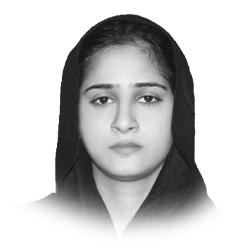By: Anum Shafique

In today’s globalized world, where economic success is paramount, women’s empowerment has emerged as a crucial factor in driving growth and progress. The idea of women actively participating in the workforce is not just about economic gains at the macro level but also about liberating them and allowing them to carve their self-identity in a patriarchal society. As a woman myself, I wholeheartedly support this notion, but it is essential to discuss the concept critically in our current environment, considering the deep-rooted cultural bounds.
Undoubtedly, women constitute half of the population in any economy, and their active involvement in the workforce can have positive economic repercussions. However, traditional cultural norms cannot be ignored, as they continue to shape gender roles and expectations within societies. In some communities, women entering the workforce has not led to their liberation; rather, it has resulted in men shirking their responsibilities as providers.
The male mindset, in many instances, remains resistant to change. As women strive for financial independence and share the financial burden, men might not wholeheartedly accept the idea of partaking in domestic duties. Instead, they might perceive it as women “taking over” their roles. Consequently, women end up juggling their professional careers with household responsibilities, leading to a feeling of being misfit in both roles.
Such a situation demands a parallel focus on changing mindsets alongside the economic paradigm shift. Simply encouraging women to join the workforce without addressing the deeply ingrained cultural beliefs will not yield the desired outcome. We must recognize that society’s pre-cultural norms are no longer applicable in a world that demands gender equality and empowerment.
In patriarchal societies, men have traditionally held the position of being the head of the family and the sole breadwinners. This privilege has led to preferential treatment. However, as women step into the workforce, there needs to be a shift in how they are perceived and treated. The idea of financial independence has been misunderstood and misinterpreted. It should not translate to women merely replacing men as providers; instead, it should be about equitable distribution of responsibilities and opportunities.
To bring about real change, we must foster a culture of equal partnership within households. Women should be respected and valued for their contributions to the workforce and the home. Equally, men should embrace their role as supportive partners, sharing both financial and domestic responsibilities. This shift in mindset is vital to create a truly empowered society.
It is time to revisit the concept of financial independence and redefine it as a collective goal rather than an individual pursuit. Empowering women should not be seen as a threat to traditional roles but as an opportunity for growth and progress. When women are truly liberated, our society as a whole will benefit from their talents, skills, and diverse perspectives.
The road ahead is challenging, but by acknowledging the need for a dual transformation in both the economy and mindset, we can build a society where women are empowered, men are supportive partners, and true equality thrives. Let us work together to break free from the shackles of outdated beliefs and create a future where women and men stand side by side, driving progress and prosperity for all.
The writer is an associated chartered banker a lawyer, and a researcher with six years of banking experience. In addition to this, she works as a lecturer (finance) at Arid University. She can be reached at an_shafique@yahoo.com














